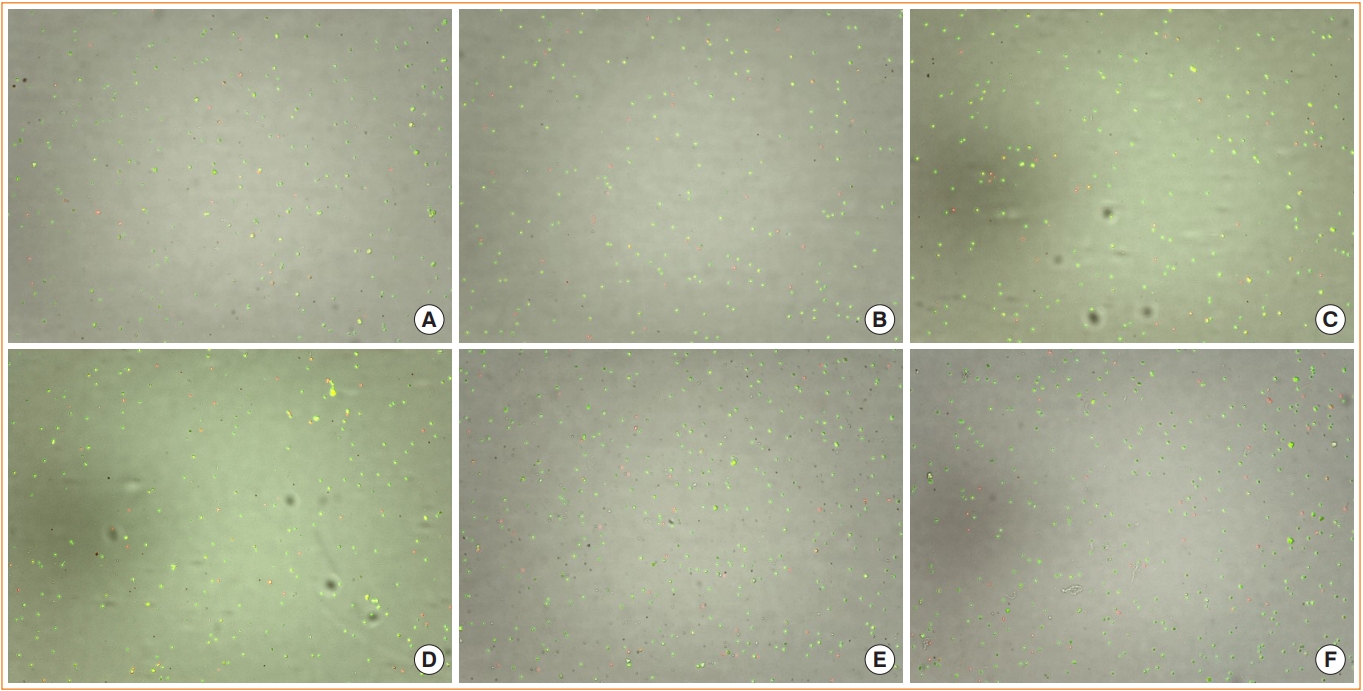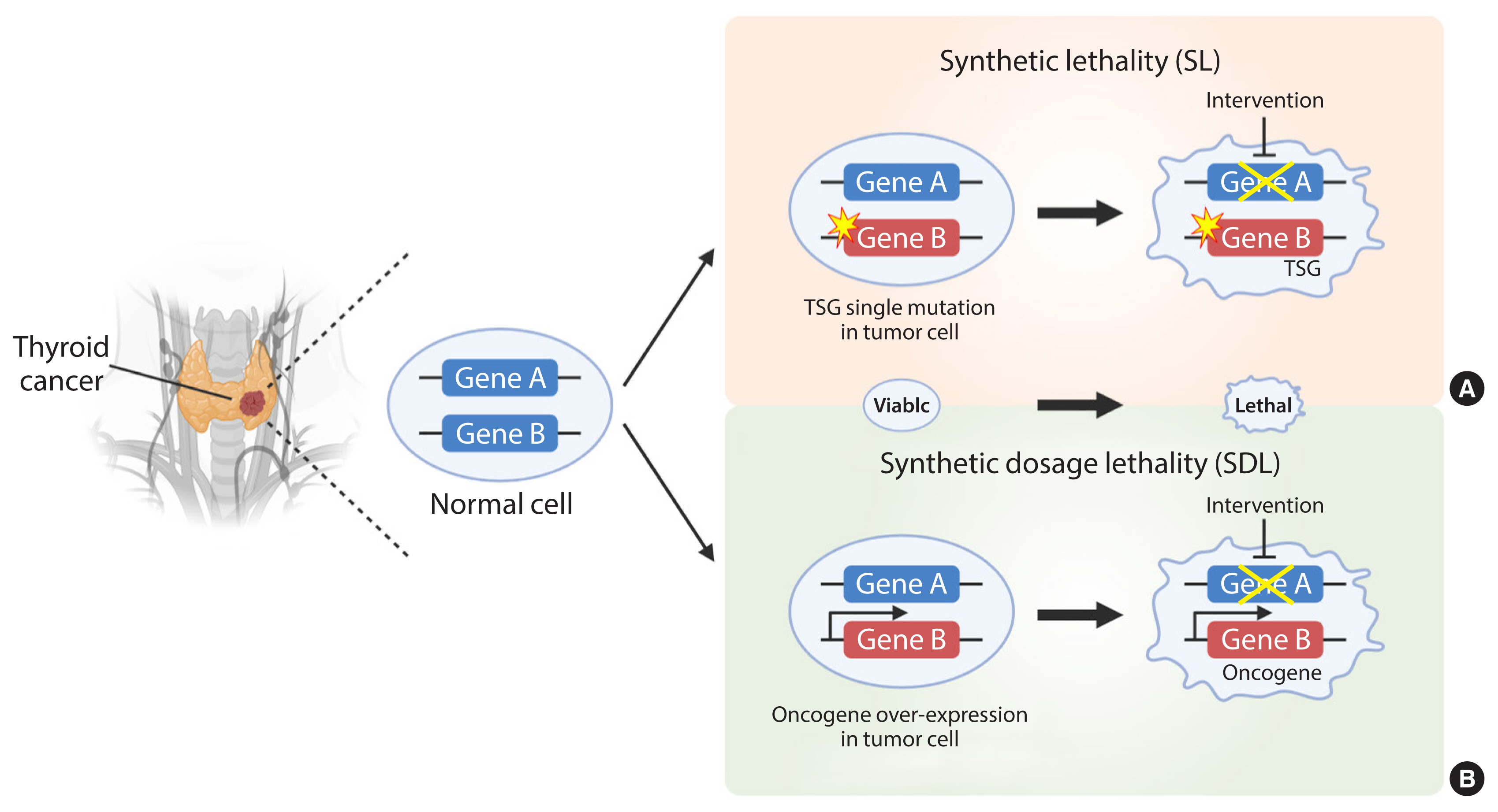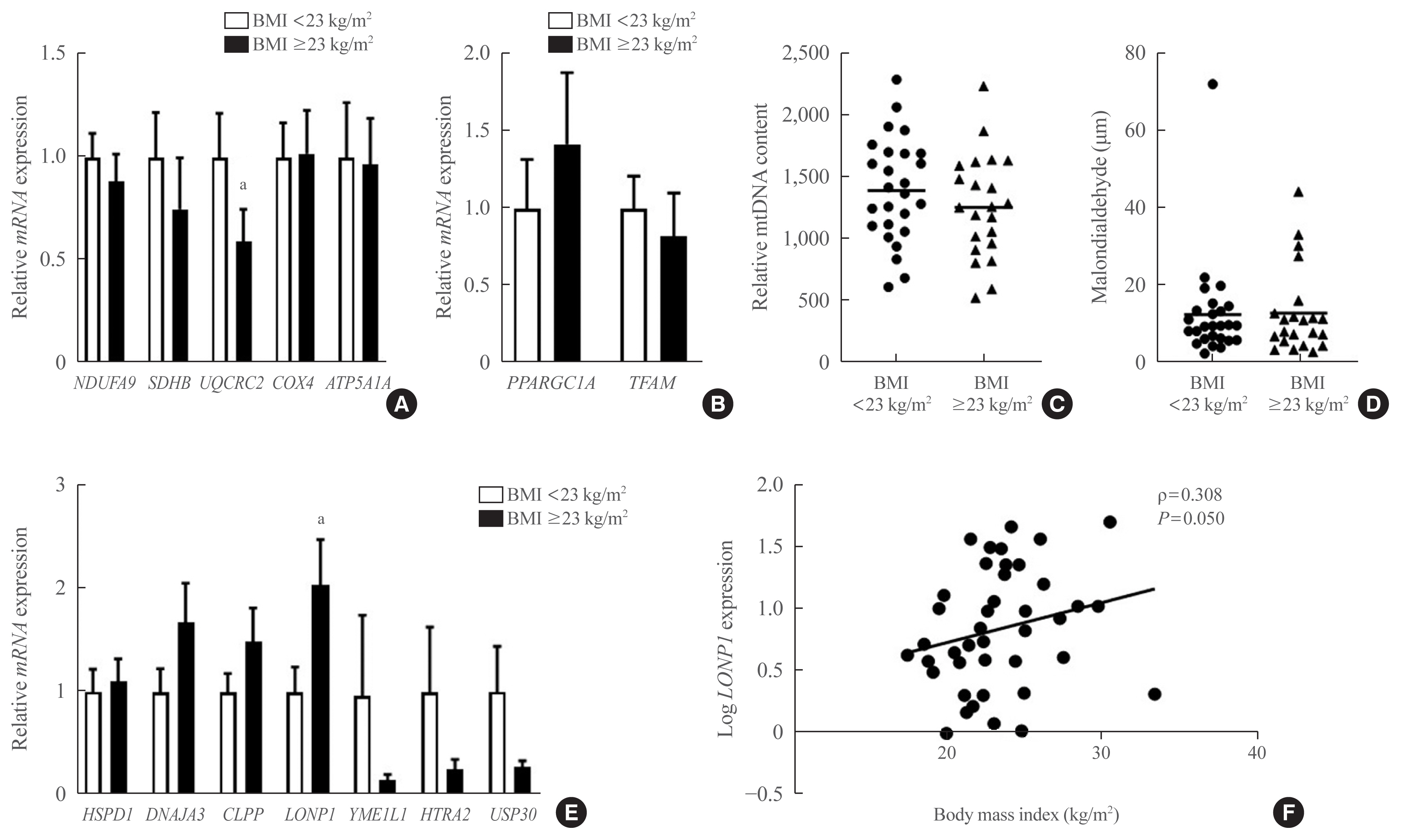Search
- Page Path
- HOME > Search
Letter
- Thyroid
- Efficient Dissociation Protocol for Generation of Single Cell Suspension from Human Thyroid Tissue for Single Cell RNA Sequencing
- Shinae Yi, Hyun Jung Kim, Bon Seok Koo, Seong Eun Lee, Jahyun Choi, Yea Eun Kang
- Endocrinol Metab. 2022;37(4):698-700. Published online August 29, 2022
- DOI: https://doi.org/10.3803/EnM.2022.1536

- 1,856 View
- 121 Download
- 1 Web of Science
- 1 Crossref
-
 PDF
PDF PubReader
PubReader  ePub
ePub -
Citations
Citations to this article as recorded by- Unraveling the role of the mitochondrial one-carbon pathway in undifferentiated thyroid cancer by multi-omics analyses
Seong Eun Lee, Seongyeol Park, Shinae Yi, Na Rae Choi, Mi Ae Lim, Jae Won Chang, Ho-Ryun Won, Je Ryong Kim, Hye Mi Ko, Eun-Jae Chung, Young Joo Park, Sun Wook Cho, Hyeong Won Yu, June Young Choi, Min-Kyung Yeo, Boram Yi, Kijong Yi, Joonoh Lim, Jun-Young K
Nature Communications.2024;[Epub] CrossRef
- Unraveling the role of the mitochondrial one-carbon pathway in undifferentiated thyroid cancer by multi-omics analyses

Review Article
- Thyroid
- Development of Metabolic Synthetic Lethality and Its Implications for Thyroid Cancer
- Sang-Hyeon Ju, Seong Eun Lee, Yea Eun Kang, Minho Shong
- Endocrinol Metab. 2022;37(1):53-61. Published online February 28, 2022
- DOI: https://doi.org/10.3803/EnM.2022.1402

- 3,465 View
- 186 Download
- 1 Web of Science
- 2 Crossref
-
 Abstract
Abstract
 PDF
PDF PubReader
PubReader  ePub
ePub - Cancer therapies targeting genetic alterations are a topic of great interest in the field of thyroid cancer, which frequently harbors mutations in the RAS, RAF, and RET genes. Unfortunately, U.S. Food and Drug Administration-approved BRAF inhibitors have relatively low therapeutic efficacy against BRAF-mutant thyroid cancer; in addition, the cancer often acquires drug resistance, which prevents effective treatment. Recent advances in genomics and transcriptomics are leading to a more complete picture of the range of mutations, both driver and messenger, present in thyroid cancer. Furthermore, our understanding of cancer suggests that oncogenic mutations drive tumorigenesis and induce rewiring of cancer cell metabolism, which promotes survival of mutated cells. Synthetic lethality (SL) is a method of neutralizing mutated genes that were previously considered untargetable by traditional genotype-targeted treatments. Because these metabolic events are specific to cancer cells, we have the opportunity to develop new therapies that target tumor cells specifically without affecting healthy tissue. Here, we describe developments in metabolism-based cancer therapy, focusing on the concept of metabolic SL in thyroid cancer. Finally, we discuss the essential implications of metabolic reprogramming and its role in the future direction of SL for thyroid cancer.
-
Citations
Citations to this article as recorded by- Toward Systems-Level Metabolic Analysis in Endocrine Disorders and Cancer
Aliya Lakhani, Da Hyun Kang, Yea Eun Kang, Junyoung O. Park
Endocrinology and Metabolism.2023; 38(6): 619. CrossRef - The Role of De novo Serine Biosynthesis from Glucose in Papillary Thyroid Cancer
Seong Eun Lee, Na Rae Choi, Jin-Man Kim, Mi Ae Lim, Bon Seok Koo, Yea Eun Kang
International Journal of Thyroidology.2023; 16(2): 175. CrossRef
- Toward Systems-Level Metabolic Analysis in Endocrine Disorders and Cancer

Original Article
- Diabetes, Obesity and Metabolism
- Expression of LONP1 Is High in Visceral Adipose Tissue in Obesity, and Is Associated with Glucose and Lipid Metabolism
- Ju Hee Lee, Saet-Byel Jung, Seong Eun Lee, Ji Eun Kim, Jung Tae Kim, Yea Eun Kang, Seul Gi Kang, Hyon-Seung Yi, Young Bok Ko, Ki Hwan Lee, Bon Jeong Ku, Minho Shong, Hyun Jin Kim
- Endocrinol Metab. 2021;36(3):661-671. Published online June 22, 2021
- DOI: https://doi.org/10.3803/EnM.2021.1023

- 4,513 View
- 151 Download
- 7 Web of Science
- 6 Crossref
-
 Abstract
Abstract
 PDF
PDF Supplementary Material
Supplementary Material PubReader
PubReader  ePub
ePub - Background
The nature and role of the mitochondrial stress response in adipose tissue in relation to obesity are not yet known. To determine whether the mitochondrial unfolded protein response (UPRmt) in adipose tissue is associated with obesity in humans and rodents.
Methods
Visceral adipose tissue (VAT) was obtained from 48 normoglycemic women who underwent surgery. Expression levels of mRNA and proteins were measured for mitochondrial chaperones, intrinsic proteases, and components of electron-transport chains. Furthermore, we systematically analyzed metabolic phenotypes with a large panel of isogenic BXD inbred mouse strains and Genotype-Tissue Expression (GTEx) data.
Results
In VAT, expression of mitochondrial chaperones and intrinsic proteases localized in inner and outer mitochondrial membranes was not associated with body mass index (BMI), except for the Lon protease homolog, mitochondrial, and the corresponding gene LONP1, which showed high-level expression in the VAT of overweight or obese individuals. Expression of LONP1 in VAT positively correlated with BMI. Analysis of the GTEx database revealed that elevation of LONP1 expression is associated with enhancement of genes involved in glucose and lipid metabolism in VAT. Mice with higher Lonp1 expression in adipose tissue had better systemic glucose metabolism than mice with lower Lonp1 expression.
Conclusion
Expression of mitochondrial LONP1, which is involved in the mitochondrial quality control stress response, was elevated in the VAT of obese individuals. In a bioinformatics analysis, high LONP1 expression in VAT was associated with enhanced glucose and lipid metabolism. -
Citations
Citations to this article as recorded by- LONP1 ameliorates liver injury and improves gluconeogenesis dysfunction in acute-on-chronic liver failure
Muchen Wu, Jing Wu, Kai Liu, Minjie Jiang, Fang Xie, Xuehong Yin, Jushan Wu, Qinghua Meng
Chinese Medical Journal.2024; 137(2): 190. CrossRef - Mitochondrial quality control proteases and their modulation for cancer therapy
Jiangnan Zhang, Wenliang Qiao, Youfu Luo
Medicinal Research Reviews.2023; 43(2): 399. CrossRef - Effects of Obesity and Calorie Restriction on Cancer Development
Ekaterina Sergeeva, Tatiana Ruksha, Yulia Fefelova
International Journal of Molecular Sciences.2023; 24(11): 9601. CrossRef - Mitochondrial Dysfunction Associated with mtDNA in Metabolic Syndrome and Obesity
Natalia Todosenko, Olga Khaziakhmatova, Vladimir Malashchenko, Kristina Yurova, Maria Bograya, Maria Beletskaya, Maria Vulf, Natalia Gazatova, Larisa Litvinova
International Journal of Molecular Sciences.2023; 24(15): 12012. CrossRef - Down‐regulation of Lon protease 1 lysine crotonylation aggravates mitochondrial dysfunction in polycystic ovary syndrome
Yuan Xie, Shuwen Chen, Zaixin Guo, Ying Tian, Xinyu Hong, Penghui Feng, Qiu Xie, Qi Yu
MedComm.2023;[Epub] CrossRef - The mitochondrial unfolded protein response: A multitasking giant in the fight against human diseases
Zixin Zhou, Yumei Fan, Ruikai Zong, Ke Tan
Ageing Research Reviews.2022; 81: 101702. CrossRef
- LONP1 ameliorates liver injury and improves gluconeogenesis dysfunction in acute-on-chronic liver failure


 KES
KES

 First
First Prev
Prev



